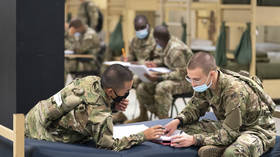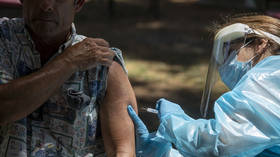Pentagon sued over HIV ban

An LGBT advocacy group has sued the US Department of Defense and the US Army over a policy barring HIV-positive individuals from enlisting in the military. The group argued that modern medicine has made the 1991 ban “irrelevant.”
The lawsuit was filed on Thursday by Lambda Legal on behalf of a gay man, a transgender woman, and a straight woman, all of whom cannot join the armed forces due to their HIV diagnoses. The Pentagon enacted a blanket ban on HIV-positive recruits in 1991, at a time when roughly twice as many Americans were dying of AIDS as today, per figures from the Centers for Disease Control and Prevention.
Medical breakthroughs, particularly the advent of antiretroviral drugs, have “radically changed the landscape of HIV treatment and progression,” the lawsuit read. With those in treatment incapable of transmitting HIV and the disease no longer a death sentence, the group argued that a recruit’s HIV status is now “irrelevant to a person’s ability to meet the criteria for entry and service in any capacity.”
The Pentagon has refused to comment on the case amid the ongoing litigation.
Lambda Legal won two landmark cases against the Pentagon in April, using similar arguments to overturn a policy banning existing service members with HIV from deploying abroad. Following the ruling, military personnel with undetectable viral loads can no longer be kept from deploying.
Arguing in favor of the ban, lawyers for the military said that while the risk of transmission from blood-to-blood contact between troops in combat zones is low, “it is not nonexistent.”














